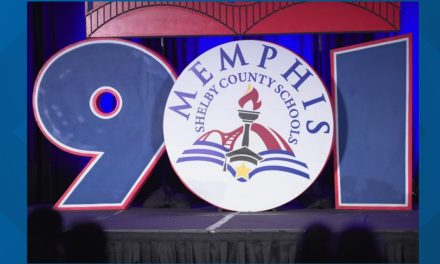Unless we want 10 percent unemployment to become the new “normal” in Tennessee, we need to change our expectations.
Over the past 30 years, as globalization has become the driving force in free-market and emerging economies, knowledge work is the only refuge for those seeking jobs that pay a decent wage. Our industrial base has fallen considerably. Since 2007, one in eight factory jobs in Tennessee are gone . Cities like Detroit and Baltimore have felt the acute pain of losing institutions who, rightly or wrongly, have greater allegiance to profit and their shareholders than the communities that host them.
I am not here to debate whether or not the United States needs a new industrial policy. I am here to suggest that we need higher expectations in education. Our long-term economic security depends on it.
The Tennessee Diploma Project puts forth changes so students are taught the skills they need to perform well in a job or at the college level. The Project represents the most significant change in our state’s public education system in decades.
Since “No Child Left Behind” (NCLB) was passed in 2001, states were given the liberty to set proficiency standards at whatever bar they thought appropriate which actually created incentive for low expectations. In Tennessee, for example, students need only get 40 percent correct on some state exams to be considered “proficient.” Anything less than 59 percent is considered failing on a typical grade scale. But because the state deemed it “proficient” under NCLB, students and parents were led to believe that our schools were preparing children for college and the world of work.
In this, we were lying.
According to Memphis City School’s proposal to the Gates Foundation, only 6 percent of students in Memphis are “college-ready” based on ACT college entrance data. And at our “highest-performing” local public school, White Station, 33 percent of students are college-ready; only 40 percent of students who start at the University of Memphis have graduated six years later .
Next year, our state standards and proficiency scores will closely approximate the highest standards in the country. Though this is a welcome change, we are about to enter a world where nearly every school in Memphis will be considered “failing.” My prediction is that there will be two reactions – urgency and complaint.
If we take the path of urgency, we will look to innovate in every possible way to help our students meet the new standards; if we take the path of complaint, we will bemoan some of our circumstances and argue for a reprieve from reality – again, the reality is that only 6 percent of students in Memphis are college-ready.
The virtue of a republic is that our political leaders are directly accountable to the citizens – this leads to widely shared benefits like public education, labor laws, and civil rights. The potential shortcoming, if we are not willing to face reality, is that we will drift into an enfeebled position where we flinch at higher standards and fail to accept that adaptation in a changing world is a necessary condition if we are to remain the world’s leading nation. We must all support public officials who embrace higher standards and innovations that will have an immediate impact and long-term systemic change.
The combination of a rising India and China – whose populations both exceed 1 billion – the loss of our manufacturing base to developing nations who, for better or worse, can do the same work at lower cost and the Great Recession of the past few years should be our generation’s collective Sputnik moment. If we do not raise our expectations for what our children need to know and be able to do, 10 percent unemployment could very well be our new normal.
The Tennessee Diploma Project will prepare our young people to succeed in postsecondary education, work and citizenship.
That’s the reality we should expect.




It maybe that the abysmal “education” Memphians have received over the past 35 years has left the citizens unable to grasp the abstract reality of the pending demise of the city’s economy and unable to respond in a coherent, positive way.
Perhaps there is a “slipping point” – a point at which the lack of education is so egregious that reality and its long term implications eludes the common citizen.
Bob